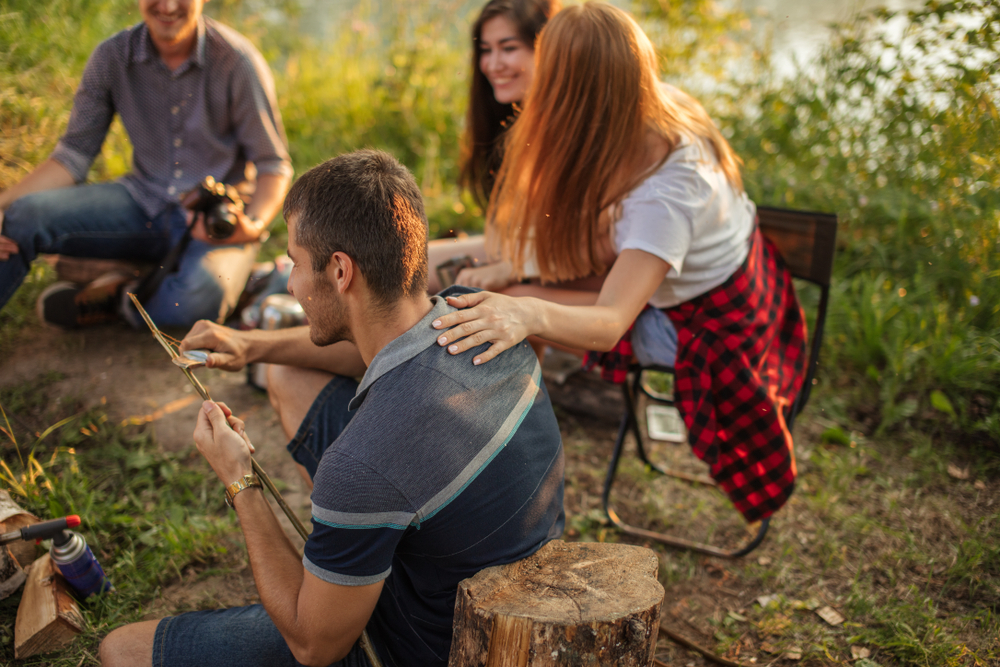
11 Dec An Eco-Outdoorsman’s Guide to becoming an Eco-Outdoorsman
Now that we’re firmly in the midst of summer, more and more of us will be spending time outside. Some things, however, become more tricky when you move isn’t nature. Cooking isn’t as simple as in the kitchen, ordering UberEATS to atop a mountain is even more difficult, and maintaining eco-conscious practices is also a challenge. But when we’re in nature, our actions have a direct influence on the environment so it’s best to tread lightly. Before you next go on your next outdoor adventure, remember these tips to ensure your ways are eco-friendly:
1. USE BIODEGRADABLE PRODUCTS
Toothpaste, sunscreen, bug spray and, if you’re washing in rivers, shampoo and body wash should be organic, chemical-free and not harm the environment. Research has recently come out showing how sunscreen is driving the bleaching of coral reefs in the tropics. And in busy places one can often see a film of sunscreen on the water. Look for non-toxic sunscreen so you aren’t polluting your skin or the environment. The same goes for toothpaste, shampoo and body wash. Mosquitoes and bugs are also a natural part of the outdoors, but tackle them with non-toxic spray that won’t bugger up the environment.
2. LEAVE NO TRACE
This is probably the first rule that all outdoorsman are taught and embrace. In the States, they have seven guidelines to follow to ensure no one leaves no trace. The two most important rules from the list are, ‘dispose of waste properly’ and ‘leave what you find.’ In other words, take all your rubbish with you and resist the urge to collect rocks or plants on the trail. As people like to say, ‘take only photographs, leave only footprints.’
3. PICK UP TRASH, EVEN IF IT ISN’T YOURS
This rule isn’t compulsory as I understand many people can’t bring themselves to pick up other people’s trash. But I’ve hiked with many people who stop and put trash in their bags and you know what? Not only does it make little difference to what you’re carrying but you tidy up the environment and feel good about it at the same time. Sometimes people drop rubbish without realising it and it will sit in that bush until someone has the initiative to pick it up and carry it out with them. Wouldn’t it be cool if everyone on the trail decided they would do what they could about this? Take what you can when you can and little by little we can ensure our environment gets cleaner. Keep in mind that individual actions do have an impact on the bigger picture, and if everybody thinks their little ol’ bad habits won’t have an effect, then we’re actually contributing to regression rather than progression when it comes to environmental change.
4. REMAIN FIRE SMART
Never make a fire in the wilderness unless there are clear areas to do so. Even then, make sure your fire never gets too big and take note of the surrounding vegetation. Strong winds are a hazard so be aware if it picks up. Depending on the seasons, mountains can be wildfires waiting to happen. Smoking while hiking and carelessly dropping embers or butts can escalate into fierce bushfires that not only threaten human life but that destroy vast amounts of land and wildlife. If you’re a smoker, carry a butt bin. If you’re camping and have made a small campfire, ensure it’s completely extinguished before you move on. And please pay attention to all fire danger warnings.
5. CHOOSE AN ECO-FRIENDLY WATER BOTTLE
Pass over the plastic and go with a reusable option that you can use time and time again. Plastic bottles not only account for a large portion of our waste but they can be detrimental to your health. Bottled water companies increasingly use BPA-free plastic, but laced into plastic bottles are other chemicals that can seep out if bottles are exposed to heat or sit around for a long time.
6. DON’T POLLUTE THE WATER
Camping near water is important, but often little thought is given to the potential pollution of our natural water sources. When you’re choosing a campsite, ensure your waste doesn’t end up in the water. Wash your plates and dishes with collected water as far away as possible from the water source, to prevent the soaps and detergents (hopefully non-toxic) polluting the water that animals will drink out of.
7. USE THE SAME ECO PRINCIPLES YOU HAVE AT HOME
Just because you’re in nature doesn’t mean you can forget all your domesticated habits. When packing your food and items, avoid plastic bags and use reusable ones. The environment will thank you. Batteries are often used in head torches, be sure to dispose of them responsibly as well as look to embrace solar products.
Do you have any extra tips for being the ultimate eco-outdoorsman? Leave a comment below.




No Comments